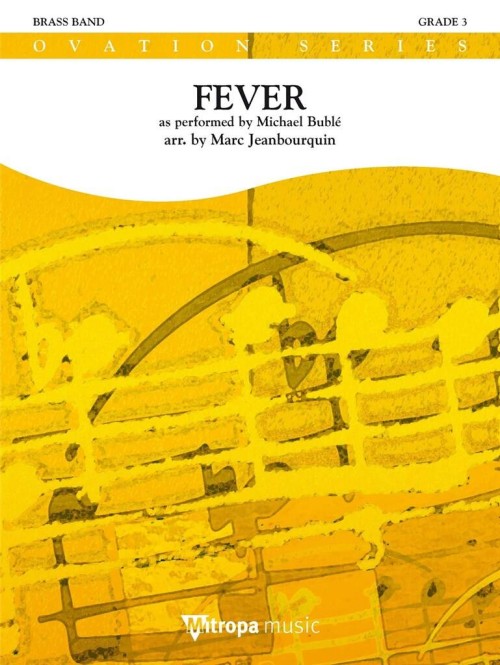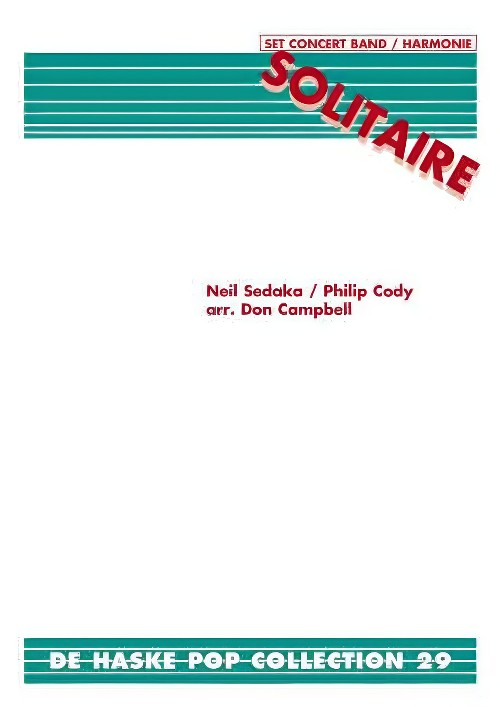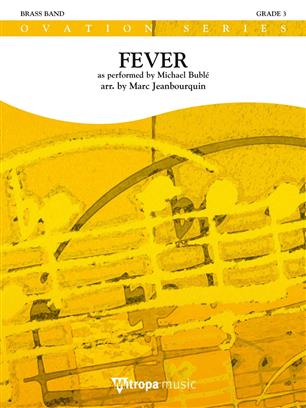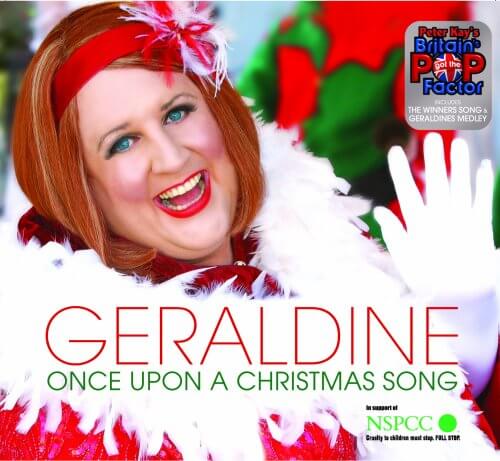Results
-
 £108.10
£108.10Over In The Gloryland - Dennis Armitage
Estimated dispatch 5-14 working days
-
 £54.99
£54.99Solitaire - Neil Sedaka - Don Campbell
Many artists have performed solitaire over the years, but it is probably Neil Sedaka's interpretation that makes this song a true classic. This classic arrangement for brass band gives every player something of interest to play.
Estimated dispatch 5-14 working days
-
 £39.60
£39.60NOW THE CARNIVAL IS OVER - Traditional - Westwood Gary
Estimated dispatch 7-14 working days
-
 £24.60
£24.60NOW THE CARNIVAL IS OVER (Partitur/Score) - Traditional - Westwood Gary
Estimated dispatch 7-14 working days
-
 £60.99
£60.99Fever (Brass Band - Score and Parts) - Jeanbourquin, Marc
This song from 1956 has been covered by a number of artists over the years - Peggy Lee, Elvis Presley, Madonna and Michael Bubl to name a few. Each one of these artists recorded covers of this song, making it an all-time classic.Duration: 3.45
Estimated dispatch 7-14 working days
-
 £54.99
£54.99Solitaire (Brass Band - Score and Parts) - Cody & Sedaka - Campbell, Don
Many artists have performed solitaire over the years, but it is probably Neil Sedaka's interpretation that makes this song a true classic. This classic arrangement for brass band gives every player something of interest to play.Duration: 5:00
Estimated dispatch 7-14 working days
-
 £57.50
£57.50Fever (Brass Band - Score and Parts)
This song from 1956 has been covered by a number of artists over the years - Peggy Lee, Elvis Presley, Madonna and Michael Buble to name a few. Each one of these artists recorded covers of this song, making it an all-time classic.
Estimated dispatch 7-14 working days
-
£35.00
Soliloquy - Barry, D
As featured on Steve Stewart's stunning new CD 'Over the Horizon'3rd section +Duration 3.20 minsListen to Steve StewartCourtesy of World of Brass
In Stock: Estimated dispatch 1-3 working days
-
£28.00
Over In The Gloryland - Dennis Armitage - Jirka Kadlec
Estimated dispatch 7-14 working days
-
 £29.50
£29.50Once Upon A Christmas Song - Peter Kay & Gary Barlow - Gavin Somerset
They just don't write Christmas songs like they used to! Enter, Geraldine McQueen (AKA Peter Kay) who set to put all that right with her (his!) spoof Christmas song, 'Once Upon A Christmas Song', co-written by Gary Barlow. The proceeds from the single were donated to the NSPCC and at its peak, reached number 5 in the UK charts. The song's memorable video and hook which tells of them singing Christmas songs 'Over & Over & Over again' made the melody an instant hit. Now your band can inject some humour into your festive concerts with this great little number. Is there a hidden Geraldine in your band?!
In Stock: Estimated dispatch 1-3 working days
